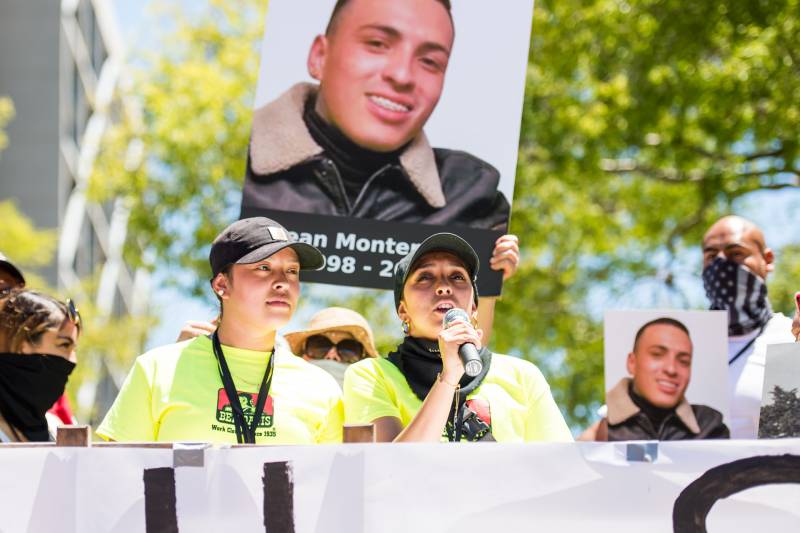Police unions and other law enforcement groups say they support the concept of a decertifying process but strongly object to several details in SB 2.
One area in the bill they’ve zeroed in on is the proposed advisory board, which would consist of nine members: seven civilians and two law enforcement representatives. The board would review investigations and make recommendations to a state-run governing body — the existing Commission on Peace Officer Standards Training (POST) — on whether to decertify a police officer.
Among the seven civilians on the proposed board, two would be people who have either experienced police misconduct or have family members that have been killed by police, and the other five would come from organizations that deal with police misconduct.
Brian Marvel, president of the Peace Officers Research Association of California (PORAC), which represents more than 77,000 law enforcement professionals in the state, said a board with that makeup will not be fair or equitable and cannot offer real due process to the officers under scrutiny.
“I can guarantee you that there's probably no license or program in the entire United States where two-thirds of the people that sit on that panel are predisposed to be against the person coming before them,” Marvel said.
But supporters of the legislation note that the advisory board would be just one step in a multilayer process.
Ultimately POST would define what actions constitute serious misconduct and have the final say on officer decertification. Officers would also have an opportunity to appeal any decision.
Lizzie Buchen, a lobbyist advocating for SB 2 on behalf of the American Civil Liberties Union, said civilian oversight is necessary because the public has lost faith in law enforcement's ability to fully police themselves.
“We think that with law enforcement really dominating this whole process, it's really important that we have that one layer that is mostly civilians,’’ Buchen said. “To ensure that they have an opportunity to have a say in the process as well.”
Law enforcement groups successfully removed another provision of the bill they objected to, which would have made it easier for the public to sue police officers who commit misconduct while on duty. Marvel and others argued the provision would open up not only police officers but also taxpayers to enormous liability.
In order to get enough support to move the bill out of the state Senate Appropriations Committee, Bradford agreed last week to drop the provision and keep police officers protected from most civil lawsuits.
“While the amendments we negotiated are difficult to accept, compromise requires us to work together and find common ground in pursuit of the best policy for Californians," Bradford said in a statement after the changes were made public.
The bill will now have to clear the state Senate by June 4, before heading to the Assembly for consideration.

